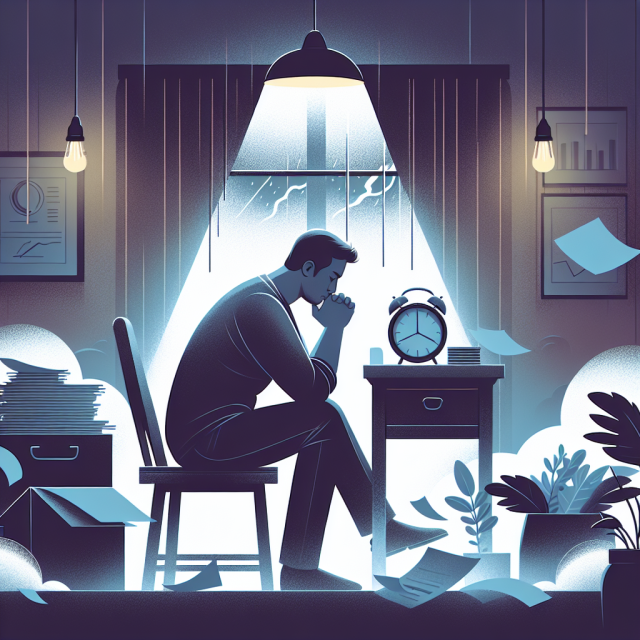
Table of Contents
Introduction: Understanding Anxiety Disorders
Does your mind ever feel like it’s running a marathon you didn’t sign up for? For many people living with anxiety disorders, this constant state of worry or fear is an everyday reality. These conditions affect millions worldwide and can disrupt every aspect of life, from relationships to work. But with the right understanding and treatment, relief is possible. Let’s dive into the world of anxiety disorders to uncover their symptoms, causes, and treatment options.
What Are Anxiety Disorders?
Anxiety is a natural response to stress. It’s that uneasy feeling before a big exam or a job interview. But when anxiety becomes overwhelming, persistent, and interferes with daily life, it might be an anxiety disorder.
Types of Anxiety Disorders
- Generalized Anxiety Disorder (GAD): Constant, excessive worry about everyday things.
- Panic Disorder: Sudden, intense episodes of fear known as panic attacks.
- Social Anxiety Disorder: Extreme fear of social situations.
- Specific Phobias: Intense fear of specific objects or situations, like flying or heights.
Anxiety disorders aren’t just about being “too nervous.” They’re real medical conditions that deserve attention and care.
Common Symptoms of Anxiety Disorders
How can you tell if what you’re experiencing is an anxiety disorder? Symptoms can vary, but here are some common signs:
Physical Symptoms
- Racing heart or palpitations
- Shortness of breath
- Sweating or trembling
- Muscle tension or headaches
Emotional and Cognitive Symptoms
- Persistent worry or fear
- Feeling restless or “on edge”
- Trouble concentrating
- Avoidance of certain places or situations
Imagine a car alarm that keeps going off even when there’s no danger—that’s what living with an anxiety disorder can feel like.
What Causes Anxiety Disorders?
Anxiety disorders don’t have a single cause. Instead, they result from a combination of factors.
Biological Factors
- Genetics: Anxiety often runs in families.
- Brain Chemistry: Imbalances in neurotransmitters like serotonin and dopamine can play a role.
Environmental Triggers
Trauma, abuse, or major life changes (like losing a job or loved one) can trigger or worsen anxiety.
Lifestyle Contributions
- Caffeine and alcohol: Both can heighten anxiety symptoms.
- Sleep deprivation: A lack of rest can make anxiety worse.
While the causes might seem overwhelming, understanding them is a step toward managing them.
Treatment Options for Anxiety Disorders
The good news? Anxiety disorders are treatable. A combination of approaches often works best.
1. Medications
Medications can provide relief by balancing brain chemistry. Commonly prescribed drugs include:
- SSRIs: Such as Prozac or Zoloft, which help regulate mood.
- Benzodiazepines: Like Xanax or Ativan, used for short-term relief.
Always consult your doctor before starting or stopping any medication.
2. Therapy
Therapy is a cornerstone of anxiety treatment.
- Cognitive Behavioral Therapy (CBT): Helps you identify and change negative thought patterns.
- Exposure Therapy: Gradual exposure to fears in a safe environment to reduce their impact.
3. Lifestyle Adjustments
Simple changes can make a big difference:
- Regular exercise, like walking or yoga, can ease symptoms.
- Mindfulness practices, such as meditation, calm the mind.
- Reducing caffeine intake to prevent jitteriness.
4. Alternative Treatments
Some people find relief in acupuncture, herbal supplements (like lavender or valerian root), or aromatherapy. Always discuss these options with your healthcare provider.
Building Support and Resilience
Overcoming anxiety disorders isn’t a solo journey. Support is essential.
Reach Out to Loved Ones
Talking to family or friends about what you’re going through can help lighten the emotional load.
Join a Support Group
Online forums, such as HealingWell, connect you with others who understand your struggles.
Professional Support
Therapists, counselors, and psychiatrists are trained to guide you through this journey. Don’t hesitate to seek their help.
For more resources, visit HealingWell or explore external mental health support.
Conclusion: Hope for a Brighter Tomorrow
Living with anxiety disorders can feel overwhelming, but remember—you are not alone. With the right understanding, treatment, and support, you can regain control and find peace. Every small step you take toward managing your anxiety is a victory. There’s always hope, and help is just a conversation away.
Frequently Asked Questions
1. How do I know if I have an anxiety disorder?
If you experience persistent worry or physical symptoms like a racing heart for six months or more, consult a healthcare professional.
2. Can anxiety disorders go away on their own?
While mild anxiety can sometimes improve with lifestyle changes, most anxiety disorders benefit from professional treatment.
3. Are anxiety disorders genetic?
Yes, genetics can play a role, but environmental factors and life experiences also contribute.
4. What’s the best treatment for anxiety disorders?
A combination of therapy, medication, and lifestyle changes often works best. Discuss options with your doctor.
5. Can I manage anxiety without medication?
Yes, many people manage anxiety with therapy, exercise, and mindfulness practices, but medication can provide additional support when needed.





